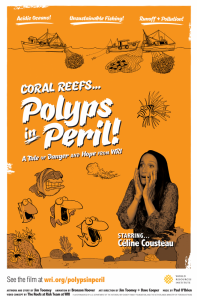
Me, on my daily commute.
I suppose it’s about time for an update. Much of my time has been spent in the office, researching away, but I’ve also had the opportunity to hear some great talks and be exposed to all of the neat things WRI gets up to. A quick overview of a couple of the talks I’ve attended:
Linwood Pendleton’s talk (of Duke University and Chief Economist at NOAA) was primarily on the dynamic and deep-rooted relationship America has had with marine and coastal resources throughout history. Quite fascinating. Included in the talk was a slide or two concerning M
onterey’s former abalone industry as well as Ed Ricketts’ role in shaping the current status of California’s red-legged frog. Something of a guru, Dr. Pendleton is.
Ray Hilborn is one of the world’s leading fisheries experts. Hilborn bucks the conventional all-fisheries-are-doomed mentality by saying relatively the opposite: that a good 83% of fish stocks are well on their way to recovery, given current fishing pressure. Basically, that while stocks have been overfished, overfishing is largely not allowed to happen anymore due to effective management. This was mostly presented in terms of US fish stocks. Globally, the situation is slightly worse-off, but nowhere near the crisis that some would have you believe. His argument is that, yes, many fish stocks are in need of additional attention, but, overall, it’s time to stop with the “unduly alarmist and apocalyptic” rhetoric and give credit to where credit is due, in this case the fishery scientists and managers responsible for these recoveries (more on his argument here ; and his article in Science). Also interesting was his blatant contempt for SeafoodWatch listings, stating that it does not change fishing practices in the slightest and only amounts to feel-goodery for people like myself. Cool stuff.
Work-wise: I continue to toil away on my coastal valuation research. What data are needed to establish a socioeconomic baseline for valuing the impacts of a fishing sanctuary? What factors contribute to a quality valuation framework for ecosystem services? If these sort of questions are of interest to you, well, hit me up.
Apart from my research, just working in an organization such as WRI has been quite instructive. Research, it turns out, is only one component of the work that goes on around here. Other activities may include: contacting funders, securing translations, overseeing graphic design of posters and videos, calling printers, arranging travel plans, contacting experts, giving interviews and presentations, etc.
It is a stimulating environment; I’m learning a lot and enjoying my time while doing so.
Further updates as events unfold.




 Posted by Sam
Posted by Sam



